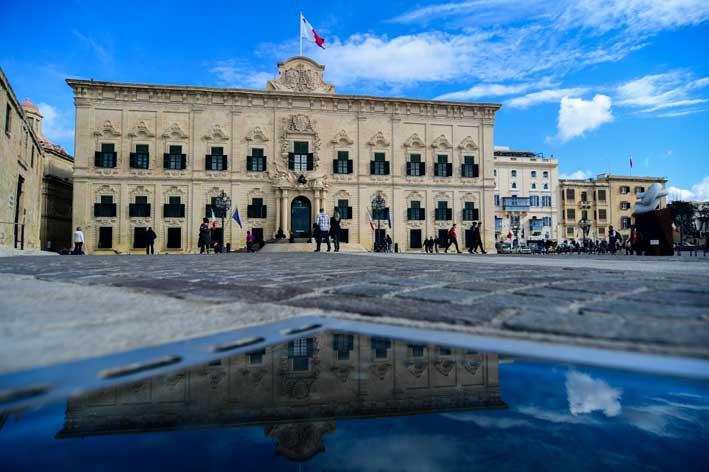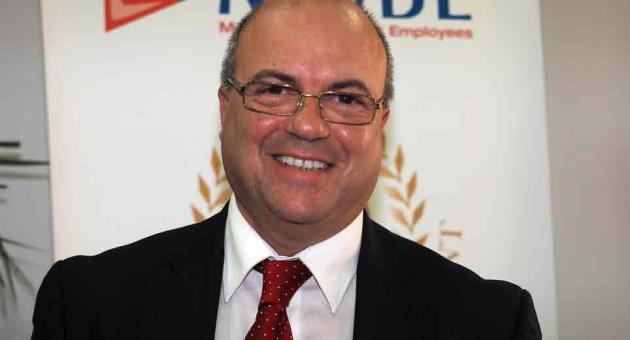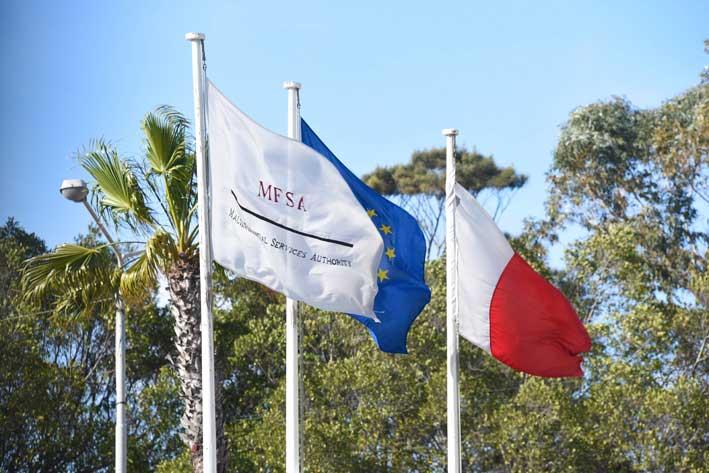Parliamentary Secretary for Financial Services Silvio Schembri told The Malta Independent on Sunday that “several lessons could be learned” from the European Banking Authority’s damning report into the conduct of the Financial Intelligence Analysis Unit (FIAU) and its investigations into Pilatus Bank.
Following its investigation which began on 23 May, the European Banking Authority (EBA) found, this week, that “general and systematic shortcomings" in the FIAU’s application of anti-money laundering directives with regard to the infamous bank. According to leaked FIAU reports, the bank used to launder the proceeds from illegal kickbacks to the Maltese Prime Minister's Chief of Staff, Keith Schembri from the sale of Maltese passports.
The same report also found that the FIAU itself had breached anti-money laundering directives.
Schembri was asked yesterday whether he believed anyone should shoulder political responsibility after the investigation's conclusions, especially given he was reported by The Times of Malta to have said that the EBA investigation was merely ‘routine’ during a parliamentary session.
He clarified that in it fell under the EBA’s remit to investigate such claims and allegations. In that sitting, Schembri told MP Simon Busuttil, who had presented the EBA’s initial letter to the House, that “it is normal procedure, it is not something that is extraordinary in the way [Busuttil] is alleging.
“This does not mean that the investigation's conclusions are not important,” he said, stressing the importance of FIAU’s independence from government and responsibility for the Unit did not fall under his remit.
“I believe there are several lessons that one can learn from these conclusions. According to the FIAU’s statement, a number of measures are already in the process of being implemented. We will look to the future to continue collaborating at EU-level, because these issues are being discussed in the context of a number of countries, to see that the measures recommended by the EBA are fully-implemented across the country’s regulatory services, and not just in the FIAU alone,” Schembri explained.

Independent authorities are overseeing Pilatus allegations
Schembri was pressed on whether this report should be taken with great seriousness by the government, given that Prime Minister Joseph Muscat was yet to comment on the conclusions, despite leaked FIAU reports showing that Pilatus Bank was used to launder the proceeds from illegal kickbacks to the Maltese Prime Minister's Chief of Staff Keith Schembri from the sale of Maltese passports.
The MFSA froze the assets of Pilatus Bank after its owner Ali Sadr Hashemi Nejad was indicted in the United States in relation to allegations to a number of financial crimes. He has since been released on bail in the USA, with restricted conditions. It later emerged that the Prime Minister and Schembri both attended Ali Sadr’s wedding, along with former KPMG partner Juanita Bencini and her husband, Allied Newspapers Director Austin Bencini.
“These allegations have been going on for a number of months, even years, and the independent authorities are conducting their own investigations. Even the EBA report does not touch on personal issues within the bank, despite the impression being given by the media. At the end of the day, the country has its own independent authorities and the government will not intervene,” he said.

Government should not interfere with state institutions
“I believe that there would be more substantiated criticism if we interfered with the independent authorities. The government should not get involved with the way the courts work, the way FIAU works, or the MFSA works for example. In the last few years, the government actually amended laws so these authorities can be more independent,” Schembri insisted.
Pushed further on this stance considering the clear institutional failings within the FIAU, Schembri, who is pushing Malta’s Bitcoin and blockchain frenzy, said: “The government intervenes by giving it greater powers. We amended the financing of the MFSA so it does not make its request to a minister, but to an independent board made up of the Opposition and the government.
“It’s nice that today you, and the Opposition, speak about independence when a lot of these rules were created under the PN government. There are so many investigations dating back several years that we are still plugging the holes today.
“This is why audits take place. MONEYVAL (a monitoring body of the Council of Europe entrusted with the task of assessing compliance with international money-laundering rules) is due to audit every regulator and will make its recommendations. Those recommendations will obviously need to be listened to,” he said.
Schembri refuses to comment on FIAU’s reaction to report
The FIAU had said in reply to the EBA report that it was “disappointed” and had “serious reservations on the process adopted by the EBA”.
Asked about this somewhat lacklustre reaction from the FIAU, especially considering that the country is meant to be leading the way in financial services and the blockchain sector, Schembri said: “I think that you have to ask that question to the FIAU, not me,” stressing that he was not responsible for the FIAU when reminded that he did, however, oversee these two important sectors.
Pressed as to whether this was the kind of response from a failing institution especially given the significant strides being made in the unknown blockchain and cryptocurrency industry, he reiterated that he “cannot answer”.
Referring to his criticism of independent media houses, he was asked whether he was worried that PBS, the state broadcaster, chose to ignore the entire report itself, only including the terse reply issued by the FIAU.

Screening and enforcement needs to be more rigorous – MUBE
Asked for his opinion on the situation, considering the risk posed to Malta’s financial services industry, and its considerable workforce, Malta Union of Bank Employees President William Portelli told The Malta Independent on Sunday: “The EBA’s findings should not be taken lightly since the report clearly confirms failures. As a result, Malta’s efforts to consolidate a reputation of being stable and reliable suffers especially when enforcement is proven to be lacking.”
Asked if the FIAU’s board of governors resign in the report’s wake, Portelli did not mince his words: “For the MUBE, it is simple – anyone effectively caught out not doing his duty or is proved to have been negligent, should face due process as a minimum, with the possibility of risking the sack.”
Portelli added, “At this stage following the findings, immediately review the internal structures, reporting lines and procedures of the competent authorities while making sure they are supported by competent and qualified people to do the job.
“Also, the screening and enforcement process needs to be more rigorous since Malta’s reputation of being the financial hub of the Mediterranean could be at stake.”

MFSA to ‘study the EBA recommendations in detail to see what lessons can be learned’
Although the Malta Financial Services Authority was “not in a position to comment directly on the EBA's report on the FIAU”, it said it “supports measures that can help strengthen Malta's financial supervisory regime, and therefore we will be studying the EBA recommendations in detail to see what lessons can be learnt.
“Collaboration across EU member states in this area should go a long way in improving supervisory activities and sharing of best practices.”